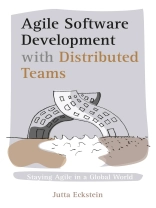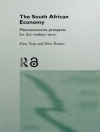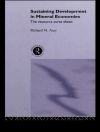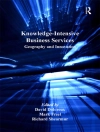The pandemic forced all teams to be distributed. However independent of COVID, in fact, all teams face the challenges of diverse distances – temporal, geographical, cultural, lingual, political, historical, and more. Many forms of distance even affect developers in the same room. The goal of this book is to reconcile two mainstays of modern agility: the close collaboration agility relies on, and project teams distributed across different cities, countries, and continents.
Enjoy insights in the book shared by Ainsley Nies (Co-author of Liftoff), Daniel Karlstrom, David Hussman (known as the Dude), Debra Lavell (Training and Communications Manager at Intel Corp.), Joseph Pelrine (Agile Psychologist), Linda Rising (Co-author of More Fearless Change), Michael Kircher (CTO DATEV e G), Naresh Jain (Tech Startup Founder), and Nicolai Josuttis (author of The C++ Standard Library).
'[Eckstein] has covered the gamut of the common and uncommon challenges that teams encounter. This should be required reading for anyone involved in distributed agile development.’ ~Ken Pugh, author of Prefactoring.
In Agile Software Development with Distributed Teams, Jutta Eckstein asserts that, in fact, agile methods and the constant communication they require are uniquely capable of solving the challenges of distributed projects. Agility is responsiveness to change – in other words, agile practitioners maintain flexibility to accommodate changing circumstances and results. Iterative development serves the learning curve that global project teams must scale.
Spis treści
1. Getting Started
1.1 Roadmap to the Book
2. Assessing Agility and Distributed Projects
2.1 Understanding Distributed Development
2.2 Understanding Agility
2.3 Agile Principles Influencing Distributed Projects
2.4 Summary
3. Building Teams
3.1 Feature Teams
3.2 Roles
3.3 Ensuring Conceptual Integrity
3.4 Summary
4. Establishing Communication and Trust
4.1 Trust and Mutual Respect
4.2 Communication
4.3 Cultural Differences
4.4 Summary
5. Keeping Sites in Touch
5.1 Communication Facilitator
5.2 Ambassador
5.3 Social Connections
5.4 Tools
5.5 Summary
6. Ensuring Development and Delivery
6.1 Iterations
6.2 Releases
6.3 Integration and Build
6.4 Infrastructure
6.5 Summary
7. Ensuring Business Value
7.1 Steering Through Valuable Features
7.2 Team Velocity
7.3 Planning an Iteration
7.4 Iteration Tracking
7.5 Dealing With Change
7.6 Overall Project Plan
7.7 Summary
8. Eliciting Feedback and Conducting Retrospectives
8.1 Customer Feedback
8.2 Review Meetings
8.3 Retrospectives
8.4 Metrics
8.5 Summary
9. Honing Practices
9.1 Development Practices
9.2 Process Practices
9.3 Development Culture
9.4 Summary
10. Introducing Agility to Distributed Projects
10.1 Start Locally, Grow Globally
10.2 Growing Teams and Growing Sites
10.3 Introducing Agile Processes to an Existing Project
10.4 Summary
11. Afterword
O autorze
Jutta Eckstein works as an independent coach, consultant, and trainer. She has helped many teams and organizations worldwide to make an Agile transition. She has a unique experience in applying Agile processes within medium-sized to large distributed mission-critical projects. Jutta is a member of the Agile Alliance (having served the board of directors from 2003-2007) and a member of the program committee of many different American, Asian, and European conferences, where she has also presented her work. She holds a M.A. in Business Coaching & Change Management, a Dipl.Eng. (MSc.) in Product-Engineering, a B.A. in Education, and is trained as pollution control commissioner on ecological environmentalism.Jutta can be reached @Jutta Eckstein












